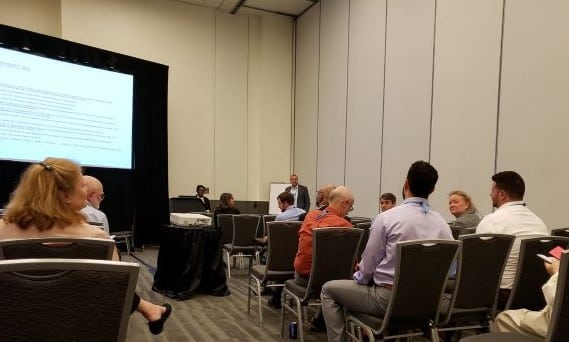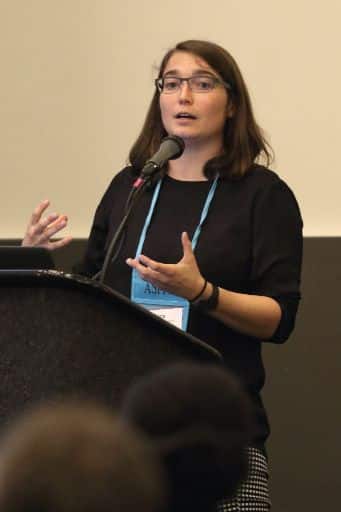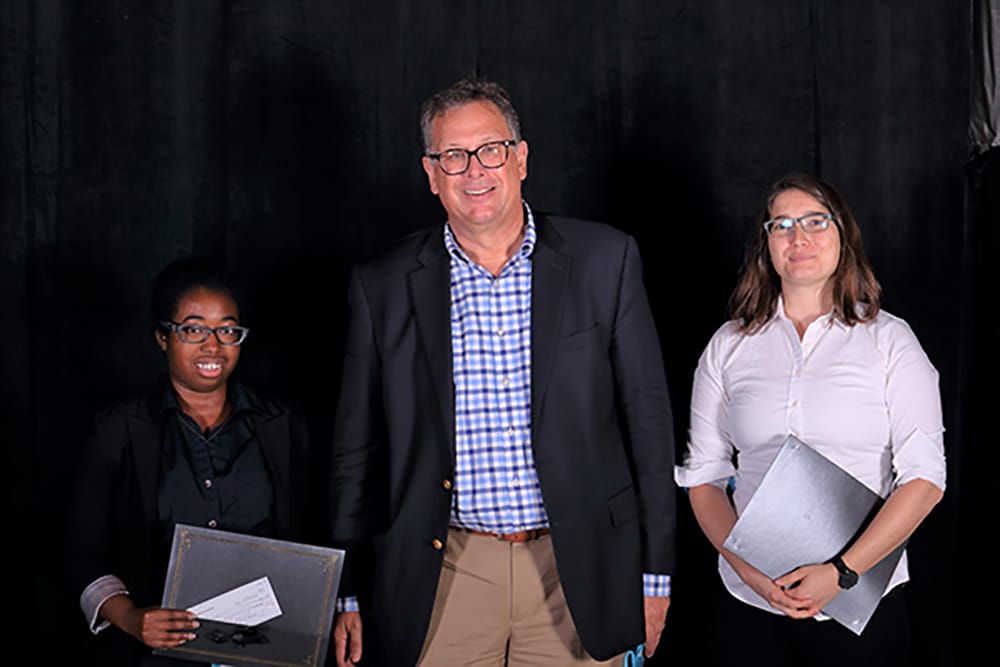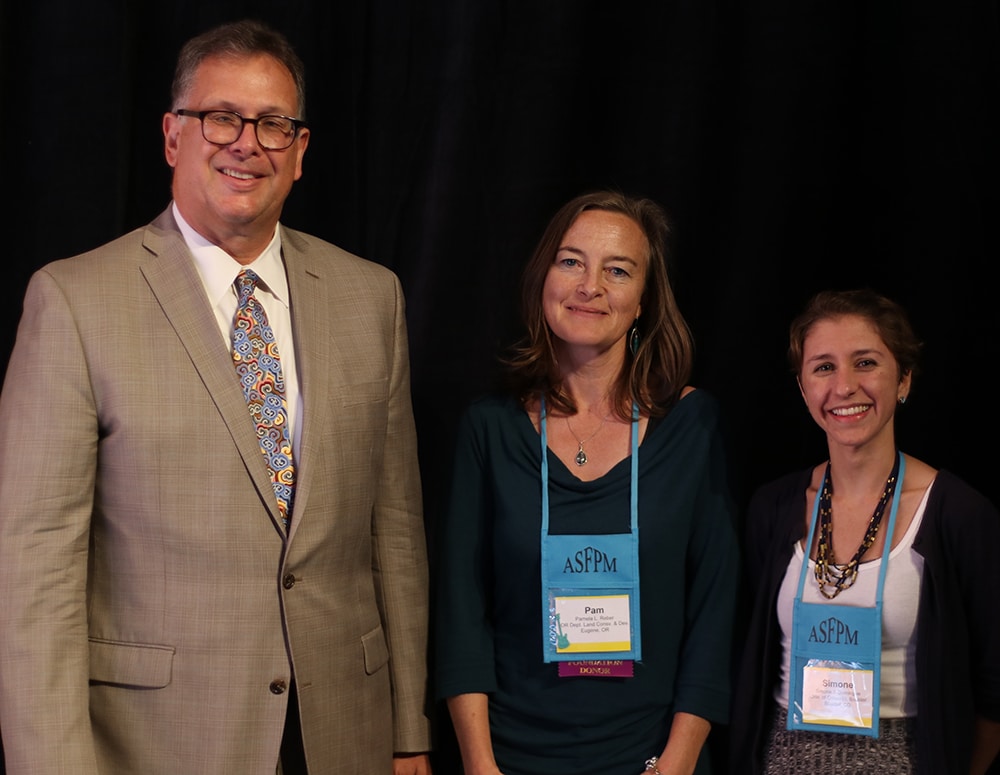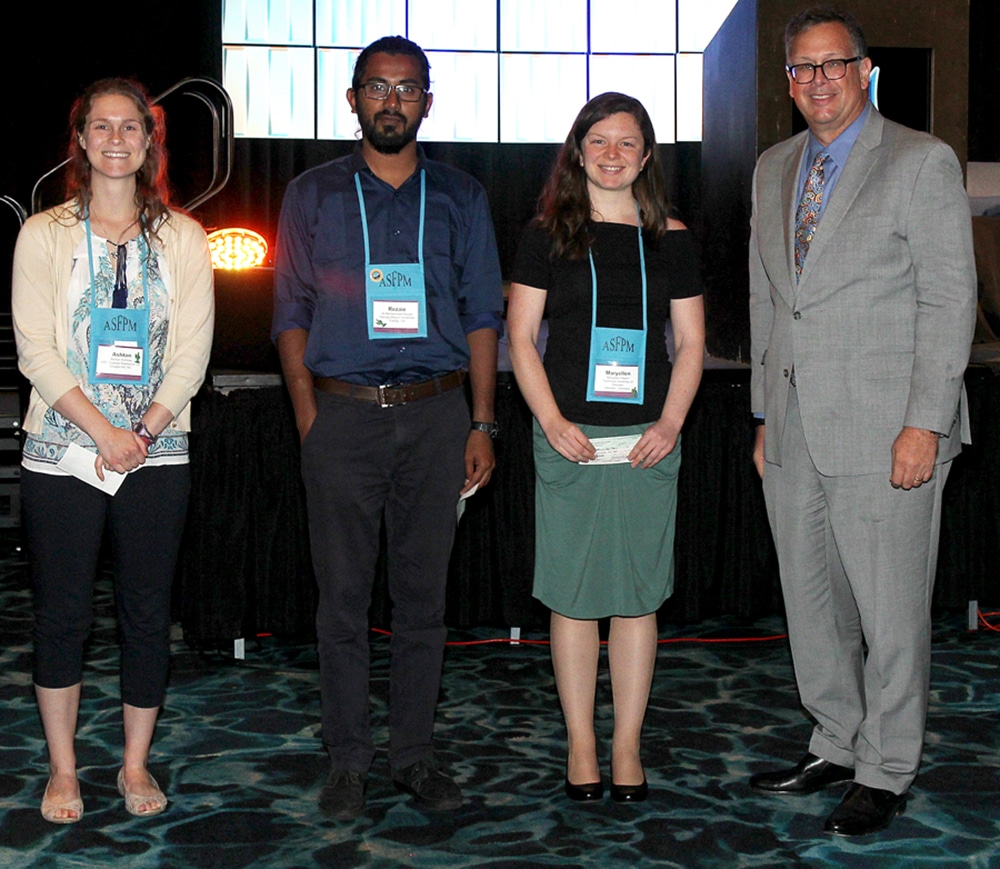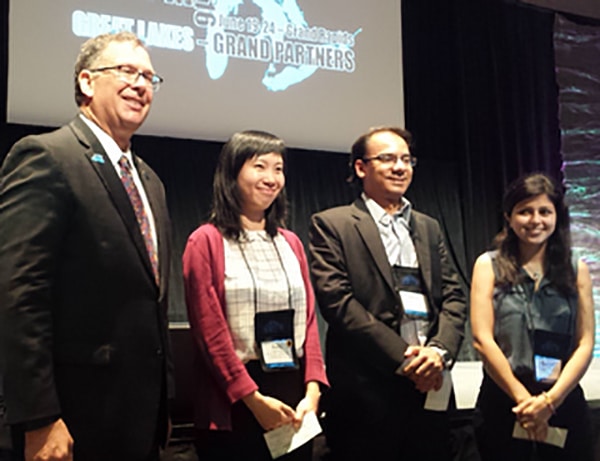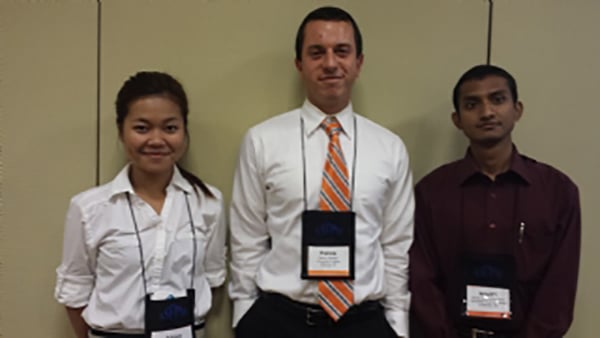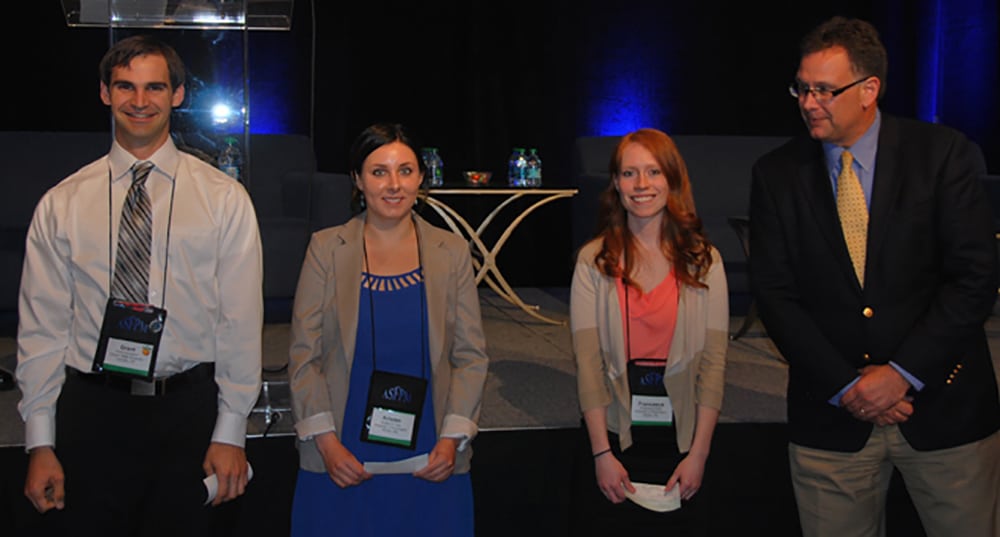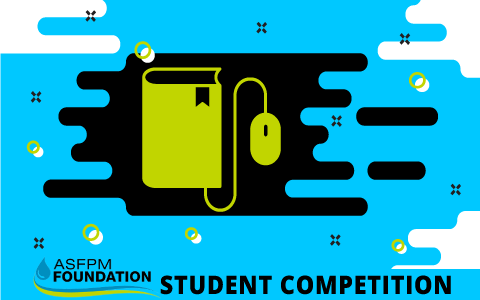 Every spring or summer the Association of State Floodplain Managers (ASFPM) conducts an
annual national conference that attracts more than 1,200 floodplain management professionals
from federal, state and local government entities as well as the private sector for a week-long
event that showcases state-of-the-art techniques, programs, practices, resources, materials,
equipment, accessories and services to accomplish flood mitigation, flood risk reduction and
other community goals. In 2011, the ASFPM Foundation sponsored the first Student Paper
Competition at the ASFPM conference as another way to engage the next generation in the
important conversations pertaining to our profession. The 15th Annual Collegiate Student
Paper Competition will be held between May 18 – 22, 2024 in New Orleans, LA at the
2025 ASFPM National Conference.
Every spring or summer the Association of State Floodplain Managers (ASFPM) conducts an
annual national conference that attracts more than 1,200 floodplain management professionals
from federal, state and local government entities as well as the private sector for a week-long
event that showcases state-of-the-art techniques, programs, practices, resources, materials,
equipment, accessories and services to accomplish flood mitigation, flood risk reduction and
other community goals. In 2011, the ASFPM Foundation sponsored the first Student Paper
Competition at the ASFPM conference as another way to engage the next generation in the
important conversations pertaining to our profession. The 15th Annual Collegiate Student
Paper Competition will be held between May 18 – 22, 2024 in New Orleans, LA at the
2025 ASFPM National Conference.
After a review of submitted abstracts, the ASFPM Foundation invites three student finalists to present their papers at the 2025 Conference and participate in conference events. Teams consisting of one or more students are encouraged to submit abstracts on subjects relating to floodplain or stormwater management. Up to $1,500 is provided for the cost for one presenter from each team to travel to the Conference, and prize money for 2025 will be $1,600 for 1st Place, $1,200 for 2nd Place, and $700 for 3rd Place. Students must meet eligibility requirements, and abstract and paper submission criteria. The goals of the Foundation’s Student Paper Competition are to encourage student engagement in floodplain management topics and to identify talented individuals with the potential to make lasting contributions to the floodplain management body of knowledge
 Eligibility
Eligibility
Any graduate or undergraduate student currently enrolled at any college or university in a field related to floodplain management is eligible to submit an abstract. The related fields include, but are not limited to, engineering, geology, geography, planning and public administration (see below for list of suggested topics). Papers may be written by a team of students, but only one scholarship will be awarded to each of the top three teams, and only one person will be invited to attend the conference as our guest to present the paper. The intent of this scholarship is to assist current students and as such we require they be enrolled during the critical dates of this competition (i.e. abstract submission deadline and full paper submission deadline). Author/student may only submit one abstract.
 Submission Process And Timeline
Submission Process And Timeline
- Abstracts must be submitted by April 11, 2025 as a PDF file via email to asfpmfoundation@floods.org (See abstract criteria below). Students must also submit an enrollment certificate or unofficial transcript which most universities provide free of charge to demonstrate active student status.
- Abstracts will be reviewed by an ASFPM Foundation panel and three finalists will be invited to submit a full paper. Students will be notified by April 19, 2025 whether they have been selected.
- Finalists' full papers along with an updated unofficial transcript or certificate of enrollment will be due by May 2, 2025.
- The three finalists will receive free registration at the ASFPM annual national conference, free lodging at the conference hotel, domestic air travel and up to $200 reimbursement of meal and other travel expenses to make their presentations at a special student session during the conference on Tuesday, May 20, 2025.
- Papers and student presentations will be judged by a panel of floodplain managers. Winners will be announced at the ASFPM National Awards Luncheon on Thursday, May 22, 2025.
 Prizes
Prizes
First Place: $1,600 scholarship; Second Place: $1,200 scholarship; Third Place: $700 scholarship. All prizes also include a complimentary one-year student membership in ASFPM.
 Topic Areas Of Consideration
Topic Areas Of Consideration
Students are encouraged to submit abstracts on studies related to one or more of the following topics:
- Coastal flooding, planning and sustainability
- Inland lake flooding issues
- Riverine flooding, planning and sustainability
- Urban flooding, planning and sustainability
- Alluvial fan flooding, prediction and unique hazard considerations
- Estuaries
- Floodplain management and stormwater control standards
- Regulatory compliance with floodplain regulations
- Local/state mapping programs (including higher standards)
- Community Rating System
- Flood warning
- Post-flood response
- Letters of Map Change (LOMCs)
- National Flood Insurance Program reform
- Flood mitigation planning
- Noteworthy flood mitigation project successes
- GIS applications for flood risk assessment
- Levee inventories, recertification of levees and non-levee embankments
- Impacts of decertification of levees
- Dam safety and dam failure
- Natural and beneficial floodplain functions
- Environmentally friendly flood mitigation
- Flood warning, mitigation and risk outreach/education programs
- Stormwater and watershed modeling advancements and research needs
- Hydrology and hydraulics advancements and research needs
- Climate variability and extreme precipitation research
- Flood hazard data management tools
- LiDAR tools, industry advancements and data needs for floodplain management and modeling needs
- Floodway standards
- Geomorphology of floodplains and resultant implications on the built environment
- Human impacts on floodplains including water quality and ecological factors
- Endangered Species Act (ESA) present and anticipated impacts on floodplain management and Risk MAP
 Faculty Advisors
Faculty Advisors
Each student is allowed a faculty advisor or advisors. The advisors may provide advice and resources, and may review the papers and presentations prior to their submittal. The advisors may be recognized as a junior author on papers, however the papers should principally be the work of student teams. Faculty advisors for participating teams may not serve on any of the selection or judging panels.
 Abstract Criteria
Abstract Criteria
Abstracts must be submitted by Monday, March 24, 2025 as a PDF file via email to asfpmfoundation@floods.org.
- Submit the abstract as a PDF document. Author/student may only submit one abstract.
- The body of the abstract must be 500 words or less, double-spaced, and should concisely describe the research and expected results from the study.
- The font must be 11-point font.
- The abstracts will be evaluated based on their significance and applicability to the field of floodplain management, on the originality of the idea of the abstract, and clarity of the paper or research goals.
- Students who have competed as semifinalists in the past are ineligible to submit again.
- Students who have previously submitted an abstract that was not selected may compete again.
 Paper Criteria
Paper Criteria
If selected as a finalist, deadline for submission of the paper is Tuesday, April 15, 2025.
- Length of paper is six to eight pages, including figures, tables and references.
- The font must be 11-point font for all parts of the paper. Do not change typeface within the paper.
- The line spacing must be double-spaced.
- The page margins must be one inch on all sides.
- Titles, authors, authors' affiliation should be centered, single-spaced at the top of the first page.
 Scoring
Scoring
Paper – 70 percent
Presentation – 30 percent
For questions regarding the competition criteria, contact asfpmfoundation@floods.org or (608) 828-6337.
Download 2023 Announcement Student Paper Competition Learn (PDF)
 2024 Collegiate Student Paper Competition Finalists
2024 Collegiate Student Paper Competition Finalists
2024
Collegiate Student Paper Competition Finalist
Salt Lake City, Utah

L-R: ASFPM Foundation Trustee Ben Fennelly, Kelly Lelani Main (3rd place), Austin Clark (2nd place), Hanji Xu (1st place)
First Prize Winner:
2017 Coyote Creek Flood at the Intersection of Homelessness and Water Management, by Hanji Xu, University of California, Berkeley
Second Prize Winner:
Assessing residential property values at risk to federally-overlooked flooding: the case of Utah, USA by Austin Clark, University of Utah
Third Prize Winner:
The Levee Effect and Residual Risk in Sacramento, California: Have we been good or lucky?, by Kelly Lelani Main, University of California, Berkeley
 2023 Collegiate Student Paper Competition Finalists
2023 Collegiate Student Paper Competition Finalists
2023
Collegiate Student Paper Competition Finalist
Raleigh, North Carolina
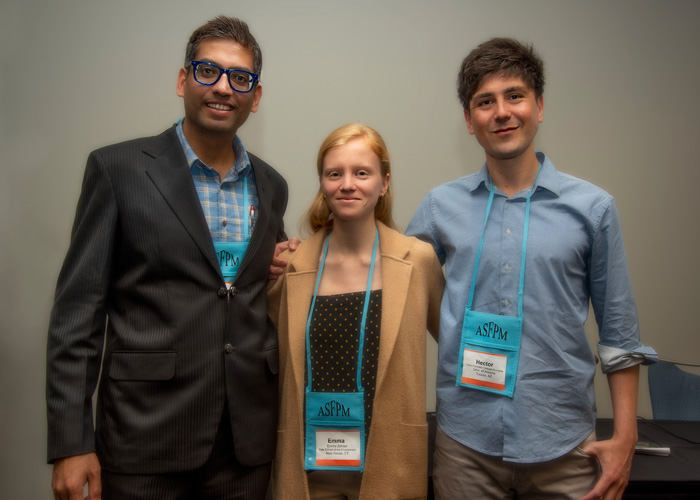
L-R: Rohan Singh Wilkho (2nd place), Emma Zehner (1st place), Hector Leopoldo Venegas Quinones (3rd place)
First Prize Winner ($1,000):
Paying for flood mitigation at industrial sites: Review of federal funding and local solutions, by Emma Zehner, Yale University
Second Prize Winner ($500):
A GIS Tool for Assessing Community Susceptibility to Flash Flooding', by Rohan Singh Wilkho, Texas A&M
Third Prize Winner ($250):
Creating Global Flow Maps using Machine Learning and Free Remote Sensing Data: A Novel Approach and Application in Unmapped Areas, by Hector Leopoldo Venegas Quinones, University of Arizona
 2022 Collegiate Student Paper Competition Finalists
2022 Collegiate Student Paper Competition Finalists
2022
Collegiate Student Paper Competition Finalist
Orlando, Florida
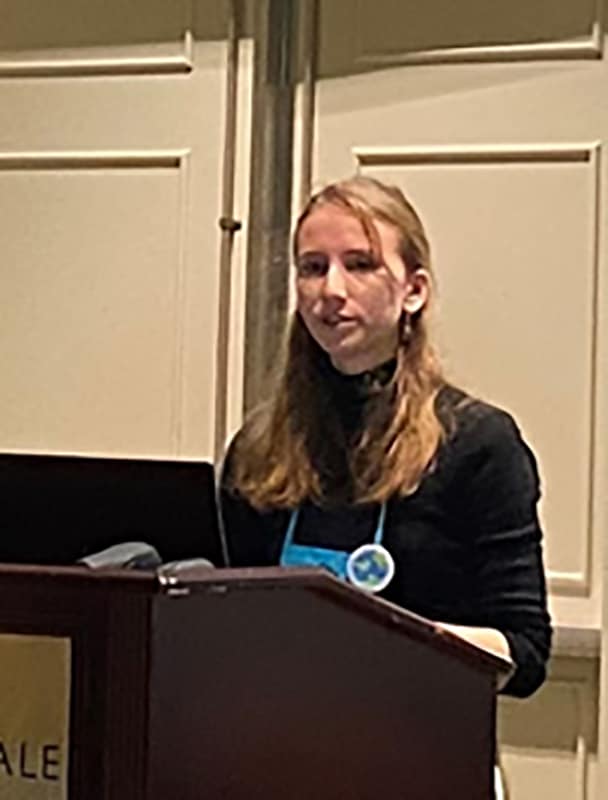
Grace Morris, University of Washington, Threshold-Based Planning for Westport, WA: A Case Study
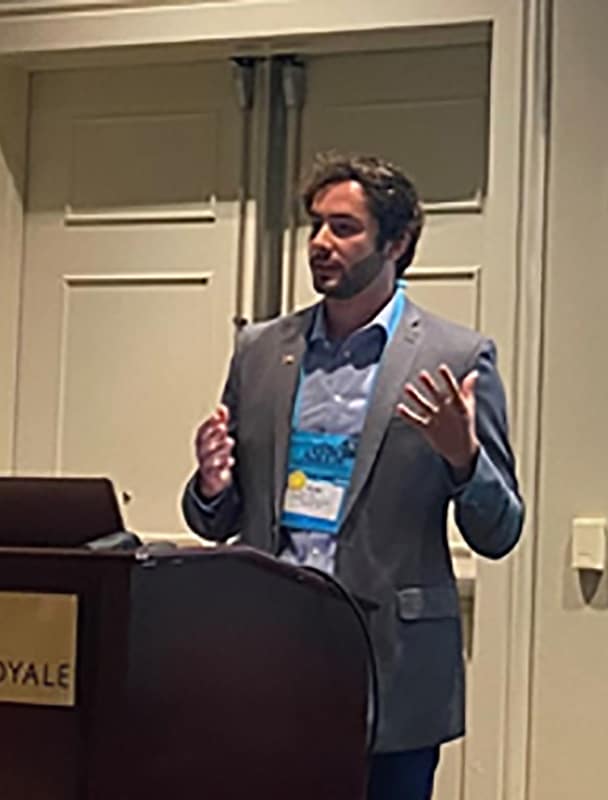
Kyle Julle, Northern Arizona University, Exploring the Relationship Between Public & Private Flood Responses
 2021 Collegiate Student Paper Competition Finalists
2021 Collegiate Student Paper Competition Finalists
2021
Collegiate Student Paper Competition Finalist
at ASFPM Virtual Conference






